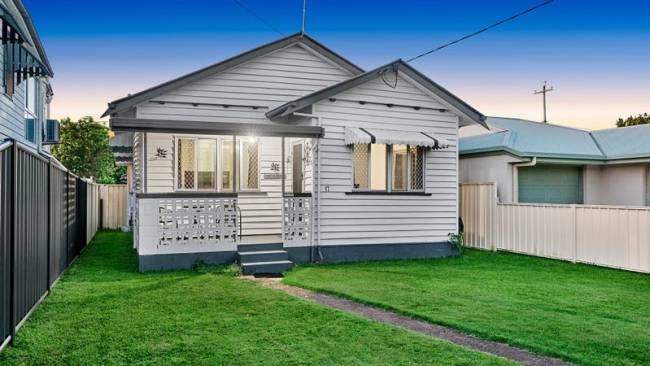Buying a new home: Mateship friendly homes a priority for buyers and designers
Mateship friendly homes have become a key priority for buyers and designers as Aussies ‘radically narrow their horizons’, industry experts have revealed.

Property
Don't miss out on the headlines from Property. Followed categories will be added to My News.
Mateship friendly homes have become a priority focus for buyers and designers as Aussies ‘radically narrow their horizons’, industry experts have revealed.
The circled wagons of lockdown have gone but our renewed emphasis on the importance of our local communities remains, with architects, designers and developers taking note.
Less than a year ago, Christy and Istvan Gyori didn’t know a soul in their neighbourhood – today they’re surrounded by people they consider friends, including their next door neighbours, Amy and Carlos Garay, who are fast becoming the couple’s BFFs.
The tight bond between the two couples may have taken them by surprise, but their experience of fast and firm friendship is anything but unusual in the current climate.
Indeed, according to data collected by the Australian Bureau of Statistics, the pandemic has seen one in three Australians declare they want to spend more time with family and friends.
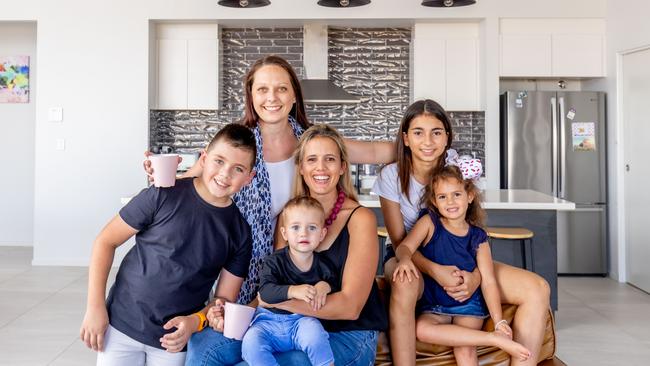
This has certainly turned out to be the case for the Gyori family, including children Rylee, three, and Blake, one, who moved into their home in July shortly after the Garays, who set up home with their children Lily-Ana, 12, Joshua, 10, and Luka, seven, in March.
Christy says while the friendship is new, she and Amy do virtually everything together.
“Amy and I get on really well,” she explains.
“She’s a stay-at-home mum caring for her son with special needs and I work full-time, so she helps with our children too. All our best friends live on our street and the children run between the houses.”
This is no happy accident with developers and builders alike carefully creating communities, such as Everleigh at Greenbank by Mirvac where Christy and Amy live, that encourage socialising at all levels.
Senior associate at architecture firm Rothelowman Simon Maurice says well designed communal recreation areas can benefit how people interact with each other. Access to great amenities in all neighbourhoods is important, whether it be a townhouse, mixed use development, master planned community or detached house.
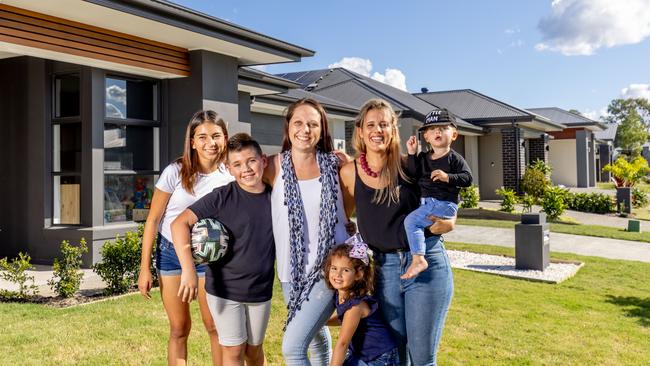
“COVID has definitely influenced the way we approach the design of these areas,” he says.
Simon says these days roof top recreational areas, showcasing everything from magnesium hot spas to children’s playgrounds, are a standard feature on inner city buildings.
“Design-led communal spaces are key to a successful and vibrant community.”
FRIENDLY NEIGHBOURHOODS COUNT IN HOME SEARCH
Christy says local community events started many conversations and also allowed and encouraged her and her family to get to know people.
“I’ve found that many families we chat to open up about how they are dealing with COVID. They tell me about their struggles and I support them in any way I can,” says Christy.
“We all band together one way or another. Now everyone shares gardening equipment or helps each other build their fences.
“The people are wonderful — so welcoming, friendly and helpful. It is a great place to raise young children.
“There’s so many like-minded families around our neighbourhood. We meet after school and on weekends at the local park. With so many children around the same age, it’s very easy to enjoy each other’s company”.
Christy’s comments come as no surprise to Griffith University urban and environmental planning lecturer Dr Tony Matthews, who says restrictions with lockdown have forced people to ‘radically narrow their horizons’ in terms of how much ground they cover.
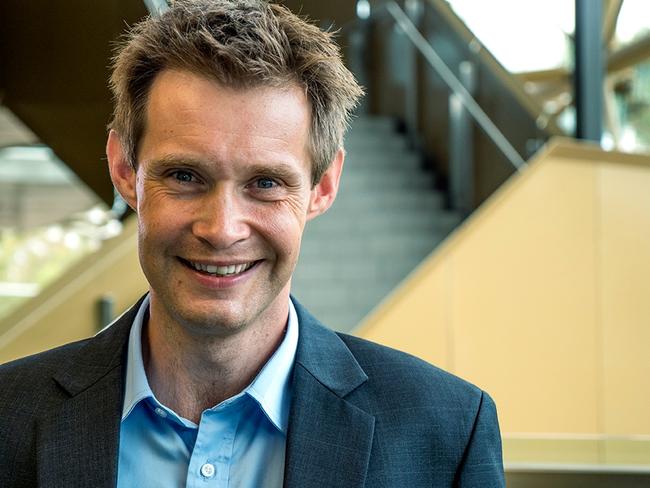
This lends itself to making friends within the neighbourhood.
“Being confined to neighbourhoods all day means people pay a lot more attention to what is around them and what isn’t,” says Tony.
“People might find there’s ample green space, gardens, children’s playgrounds, areas to walk your dog or ride your bike, or they might realise there actually isn’t much to do at all.”
He says people have discovered ways to engage more with others in their communities as a result of the pandemic.
Neighbours are going out of their way to acknowledge one another in the street and many are taking the interaction one step further and, like Christy and Amy, forming tight bonds.
This can occur anywhere of course, but it’s especially common within masterplan communities such as the one in which Christy, Amy and their families live.
“Masterplan communities are in part designed to increase potential interaction, that’s why community centres, dog parks and green space are included because it helps bring people together,” says Tony.
The ABS is reporting three in 10 Australians are making health a priority as a result of COVID restrictions. Accordingly, it’s perhaps not such a surprise that families such as Christy and Amy’s are creating their own social groups.
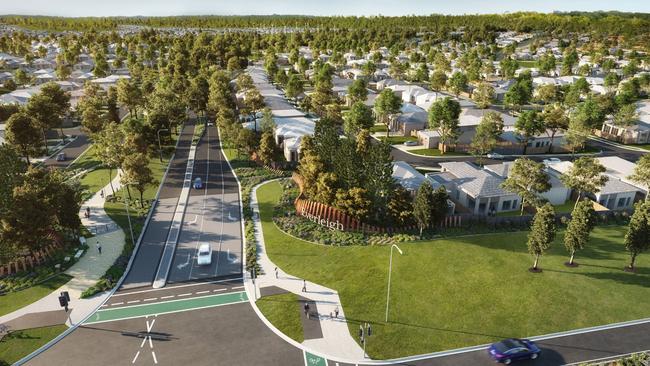
THE SPIRIT OF COMMUNITY
Christy says she regularly organises monthly date nights with other couples from her street too.
“We get a babysitter to one house to mind the children while we all go out,” says Christy.
She and Amy have started a community exercise group – Empowering Positive Mindset.
“We started working out in our driveway and as people walked past, we’d invite them to join and it just grew.
“We now meet in the park three mornings a week, with everyone welcome, and get around eight to 10 people taking part in each session. We have about 130 people involved in our Facebook group.”
Amy says moving here was the beginning of life-changing and enduring friendships.
“I thought when we moved here, I would wave at people and that’s it, but it has been the absolute opposite,” says Amy.
Amy says everyone is like-minded and active in their community, with people out walking and making use of pathways and parks more than she’s ever experienced before. She describes Christy as the sister she never had.
“We share a special bond and COVID has cemented that relationship, especially because we have been stuck in our street,” she adds with a laugh.
Relationships Australia’s national executive officer Nick Tebbey says friendly neighbours can and do improve people’s lives and wellbeing.
Originally published as Buying a new home: Mateship friendly homes a priority for buyers and designers




